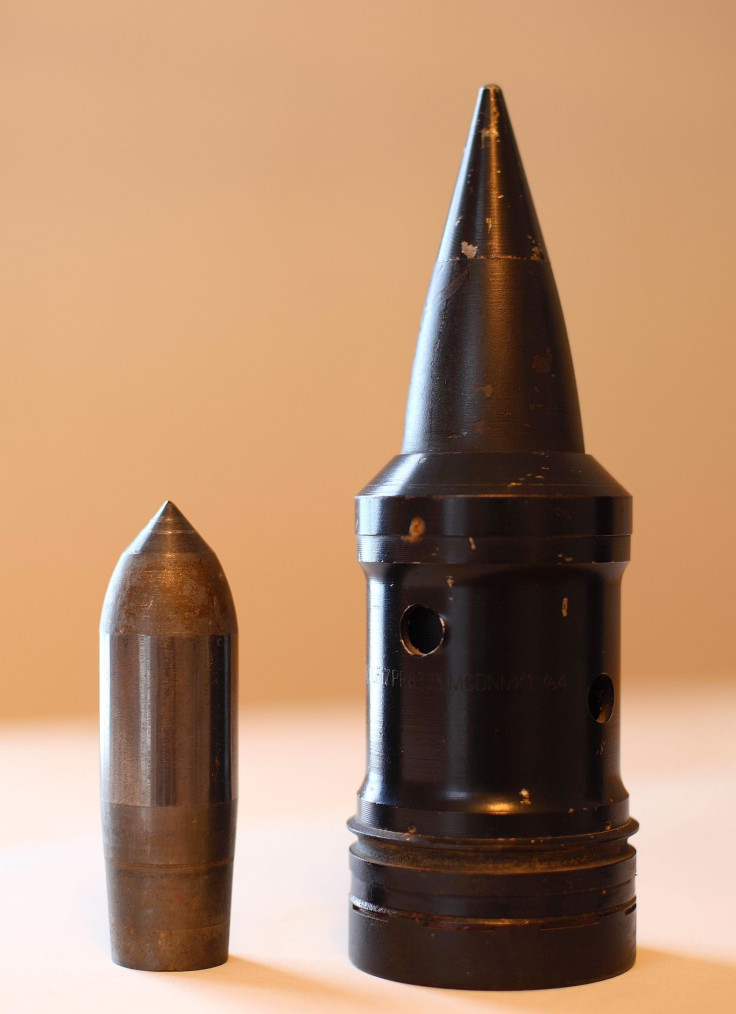Bomb squad races to hospital after WW2 artillery shell removed from man's rectum
The hospital removed a "chunky, pointed lump of lead designed to rip through a tank's armour" from the patient's backside.
A team from the British Army's Explosive Ordnance Disposal Unit had to rush to Gloucestershire Royal Hospital in Gloucester on Dec. 1 in response to a call about a World War II artillery shell that was retrieved from a man's backside.
The man was reportedly left in pain after he "slipped and fell" on the 17cm by 6cm ammunition while cleaning his private collection of military arsenal. A source told The Sun that the unnamed patient "found the shell while he was having a clear of his stuff."
"He said he put it on the floor then he slipped and fell on it — and it went up his a**e. He was in a considerable amount of pain. I think he collected military memorabilia," the insider said.
The large item, as seen here in this photo shared by the publication, was successfully removed from the man's rectum. But the hospital still had to call in the police to make sure it was no longer dangerous. A police spokesperson said they eventually also contacted the Army's Explosive Ordnance Disposal unit for help. It is said a team from 11 Explosive Ordnance Disposal Regiment raced to the hospital where they "confirmed it was not live and therefore not a danger to the public."
"It was a solid shot round. It was a chunky, pointed lump of lead designed to rip through a tank's armour," the spokesperson said adding, "It was basically an inert lump of metal, so there was no risk to life — at least not to anyone else's." The WWII bullet was later identified as that used with six-pounder anti-tank guns.
Meanwhile, a representative for the Military of Defence also confirmed that an "Army Explosive Ordnance Disposal team was called out to Gloucestershire at the request of local police." A spokesperson for the hospital also said that "as with any incident involving munitions, the relevant safety protocols were followed to ensure there was no risk to patients, staff, or visitors at any time." As for the patient, he was believed to have been released and is expected to make a full recovery. Doctor Carol Cooper said the man could have died if the WWII shell pierced his gut.

© Copyright IBTimes 2025. All rights reserved.





















